Mangalore, January 13: Union Minister of State for Youth Affairs and Sports Ajay Maken on Friday inaugurated the food festival organized as part of the 17th National Youth Festival in Karavali Utsav Grounds adjacent to Mangala Stadium.
As many as forty-four food stalls, serving the delicious food from all regions of India have added taste to the national assembly of youth. Foodies from different parts of India who thronged the coastal city to witness the mega event can satisfy his tastebud till January 16.
Most of the states which have participated at the Youth Festival have put up separate food stalls, so that they can give the customers mouthwatering food and tickle their taste buds.
The Assam stall had people from Nagaon, who were offering Thilpitah, bamboo achar and mustard paste. The Bihar stall had delicacies in Litti Choka, Chana Sattu and Rabri. Chandigarh were dishing out bread rolls, while West Bengal made brisk business with different types of rolls, like veg-roll, egg-roll and paneer rolls. Chhattisgarh stall had Mungodi and Chila as specialties.
The Delhi people offered Desi Ghee-ka-Tikki where the ghee was from delhi with Dahi Bhalla and Gol Guppas as fast food. The Haryana stall had Gajar-ka-halwa and Milk Burfi. The Himachal Pradesh people made Kadi Pakoda, curd and besan-ka-Pakoda.
Jharkand offered Duska, Pitha and Kachri to foodies. The south Indian state of Kerala offered Puttu, Kadale curry and pappad. They incidentally had won the second prize at last year's Youth fest in Rajasthan. The Kerala Parotha had to be another south Indian delicacy from God's own country.
Madhya Pradesh presented Dal Bafle, made from wheat and ghee. Maharashtra produced Puran Podi for the public, while Punjab offered their trademark Makki-ki-Rori and Sarson-ka-Saag. The Rajasthan stall cooked some Kesar Churma, masala bhati and Ghulab Churma. The cooks from North East in Sikkim baked some Sel Roti made from ground rice and Momos – a cabbage and onion delicacy. Tamil Nadu made some Banana Bajjis for all, while the Uttar Pradesh folk had hot Jalebis with Kachori which is Mathura's breakfast. The Uttarakhand team had Jhangore-ki-kheer and Kode-ki-Roti.
The Andhra Pradesh sold their famous Hyderabadi Biryani, Qurbani-ka-Meetha and Kaddu-ka-kheer. The Union Territory of Daman and Diu made prawns JInga , Sondia , Mendhli and Sekdi all sea food specialties. The Jammu and Kashmir state offered Biryani, with Kesar and also Kesar Chai. Nagaland dished out smoked pork meat with rice and soya pickle. The Orissa team made chicken fry and Dahi-Wada for the hungry Mangaloreans.
Also there were some local stalls who gave a taste of local delicacy and sea food to the people from other states. “It's great to see the whole of India come here and give us their delicacies. I am enjoying the food here and will come every night till the fest ends”, said Arun, who was among a group of local foodies who were enjoying the traditional dishes.
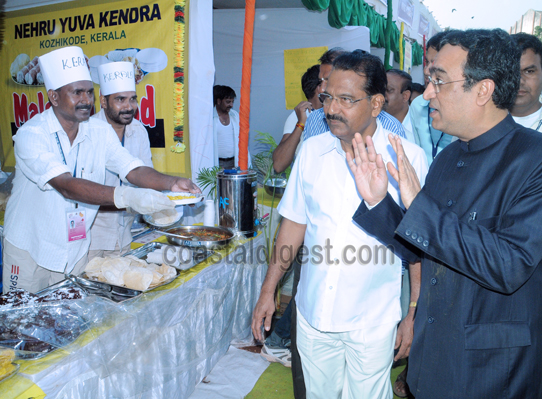
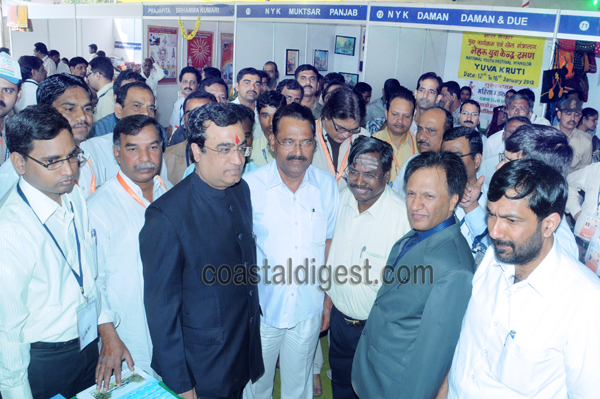
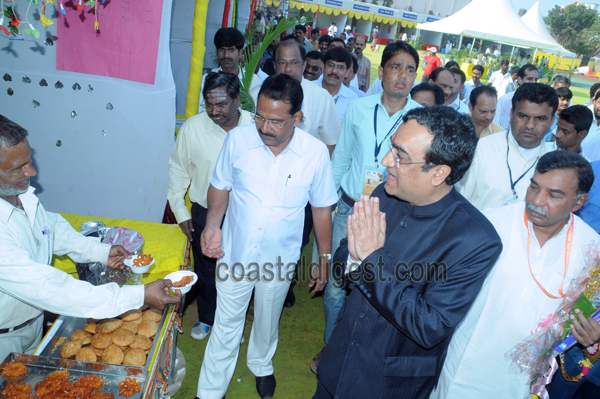
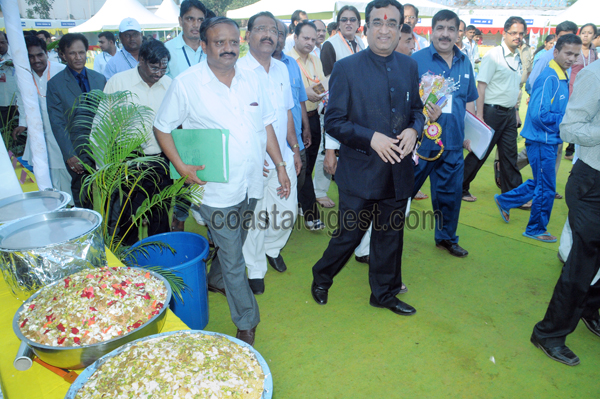
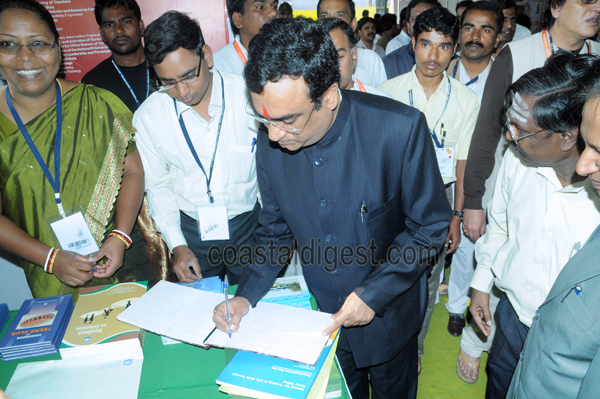
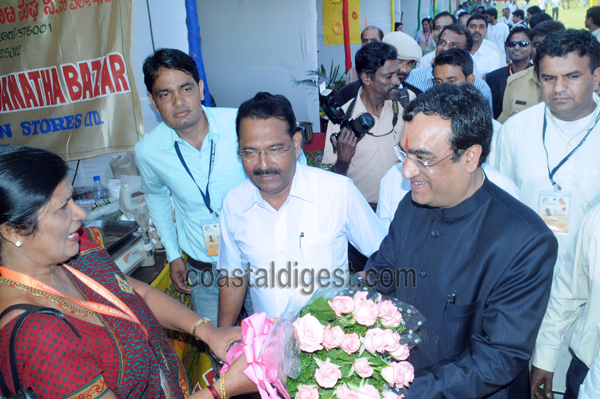
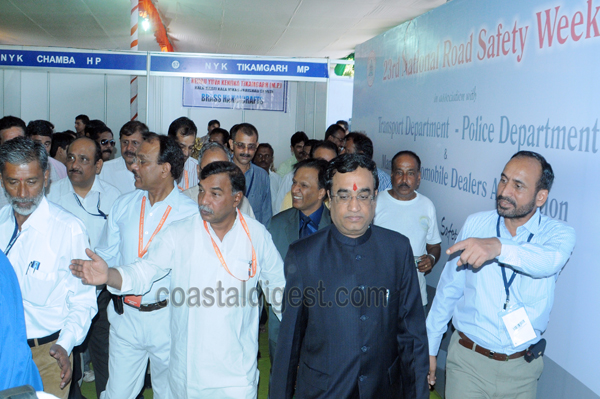
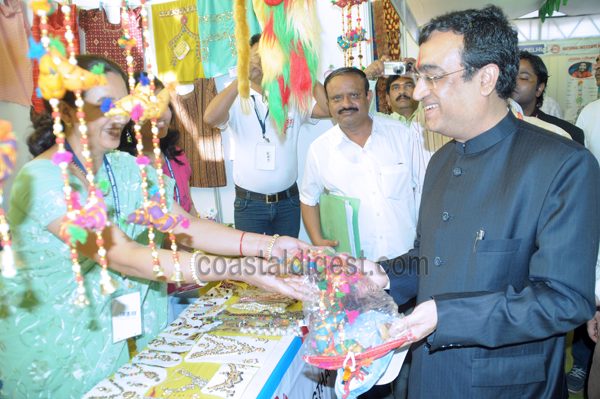
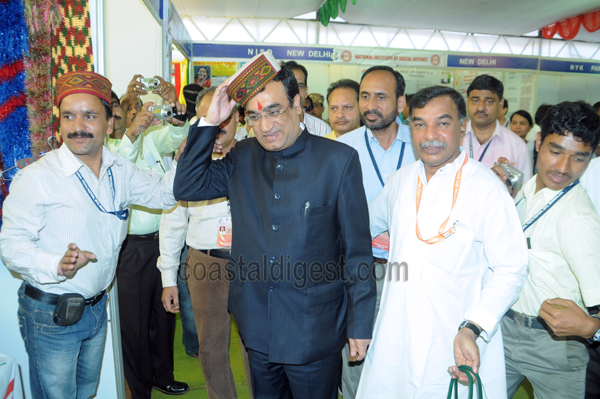
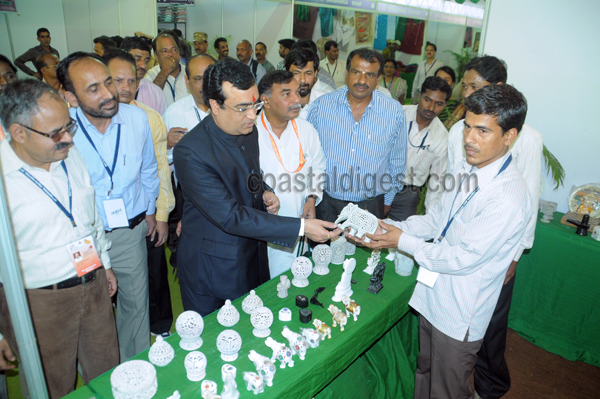
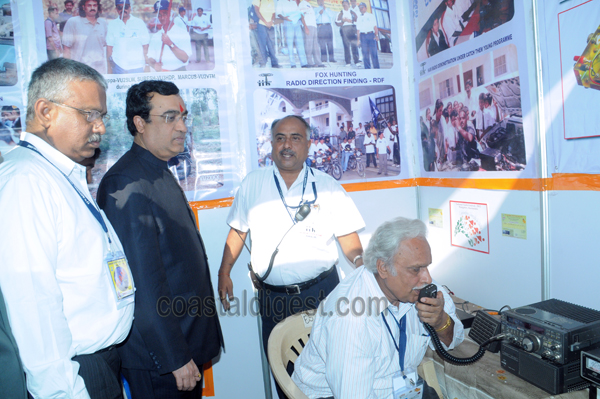







Comments
Add new comment